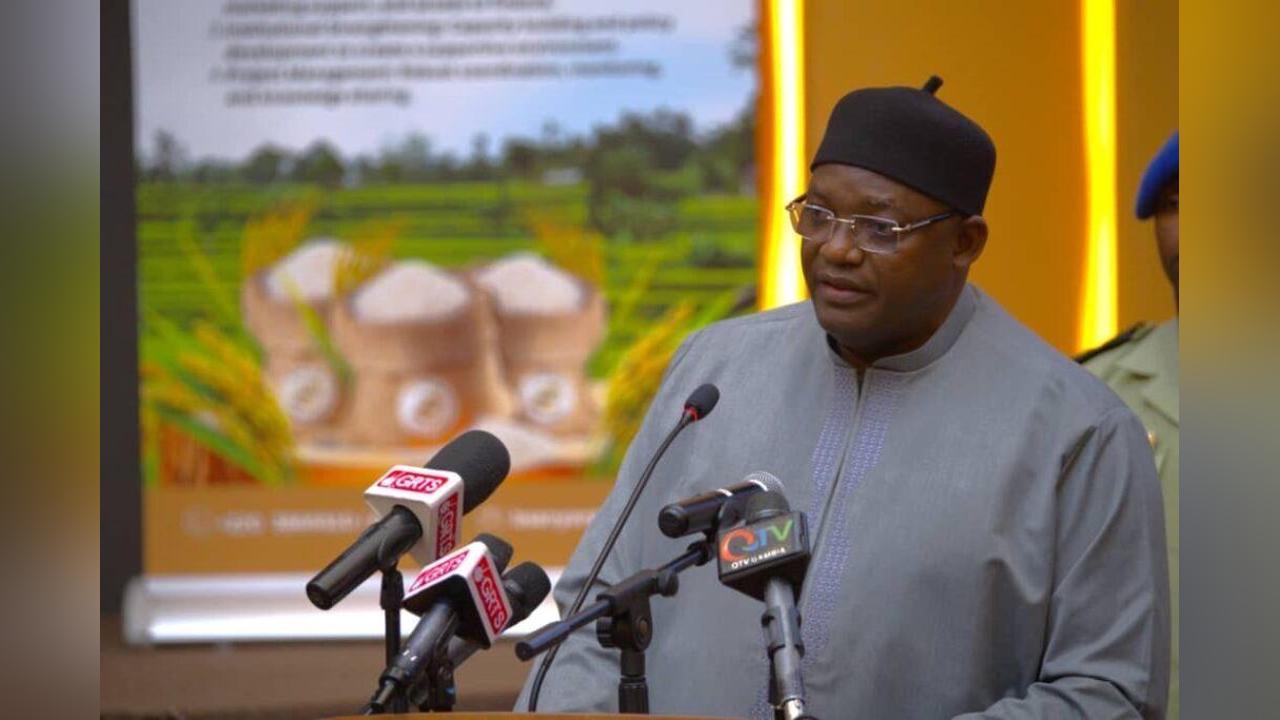Africa-Press – Gambia. President Adama Barrow has officially launched three transformative agricultural development initiatives worth over $68.4 million, marking a major step forward in The Gambia’s drive to modernize its agricultural sector. The projects—REWARD-Gambia, the P2-P2RS Sahel Resilience Initiative, and the Gambia Incentive-Based Risk Sharing System for Agricultural Lending (GAMIRSAL)—are designed to boost food security, strengthen climate resilience, and promote sustainable farming practices nationwide.
The launch ceremony, held at the Sir Dawda Kairaba Jawara International Conference Centre, brought together government officials, agricultural stakeholders, and community representatives. In his keynote address, President Barrow emphasized the strategic importance of the initiatives in transforming rural livelihoods and spurring economic growth.
“These projects, collectively valued at over sixty-eight million, four hundred thousand US Dollars (USD 68.4 million), mark a turning point in our national quest for agricultural transformation, food sovereignty, and climate resilience. I am confident that their impact will be felt across all corners of The Gambia, particularly in our rural communities. Ladies and gentlemen, my government recognises agriculture as the backbone of our economy and the key to ending poverty and hunger,” President Barrow said.
He noted that through the National Development Plan (2023–2027) and the Second Generation National Agricultural Investment Plan for Food and Nutrition Security (2019–2026), his administration is committed to empowering farmers, engaging youth in agribusiness, and ensuring women’s full participation in productive sectors.
The REWARD-Gambia Programme is focused on modernizing rice production through the development of advanced irrigation infrastructure, improved seed systems, mechanization, and enhanced market access. It will support the creation of sustainable, private-sector-led rice production clusters, directly benefiting 8,000 households and indirectly reaching over 120,000 people across all seven agricultural regions.
The P2-P2RS Sahel Resilience Initiative will rehabilitate rice fields and vegetable gardens, provide farming equipment, and expand access to climate-resilient seeds and fertilizers. Targeting 67,200 vulnerable households in 19 districts, the initiative is designed to bolster communities’ resilience to climate change and food insecurity.
The GAMIRSAL project will establish a national risk-sharing mechanism to improve access to agricultural financing. It aims to support 5,000 direct and 20,000 indirect beneficiaries, with women and youth expected to make up half of the participants.
Together, these projects represent a major investment in The Gambia’s agricultural future—one that promises to create more inclusive, resilient, and sustainable rural economies.
For More News And Analysis About Gambia Follow Africa-Press






